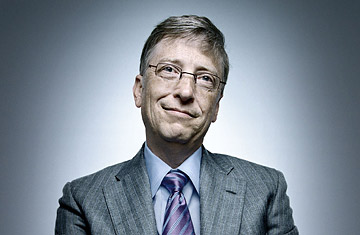
Bill Gates
(3 of 3)
I'll also talk with CEOs about what their companies can do. One idea is to dedicate a percentage of their top innovators' time to issues that affect the people who have been left behind. This kind of contribution takes the brainpower that makes life better for the richest and dedicates some of it to improving the lives of everyone else. Some pharmaceutical companies, like Merck and GlaxoSmithKline, are already doing this. The Japanese company Sumitomo Chemical shared some of its technology with a Tanzanian textile company, helping it produce millions of bed nets, which are crucial tools in the fight to eradicate malaria. Other companies are doing the same in food, cell phones and banking.
In other words, creative capitalism is already under way. But we can do much more. Governments can create more incentives like the FDA voucher. We can expand the report-card idea beyond the pharmaceutical industry and make sure the rankings get publicity so companies get credit for doing good work. Consumers can reward companies that do their part by buying their products. Employees can ask how their employers are contributing. If more companies follow the lead of the most creative organizations in their industry, they will make a huge impact on some of the world's worst problems.
More than 30 years ago, Paul Allen and I started Microsoft because we wanted to be part of a movement to put a computer on every desk and in every home. Ten years ago, Melinda and I started our foundation because we want to be part of a different movement--this time, to help create a world where no one has to live on a dollar a day or die from a disease we know how to prevent. Creative capitalism can help make it happen. I hope more people will join the cause.
